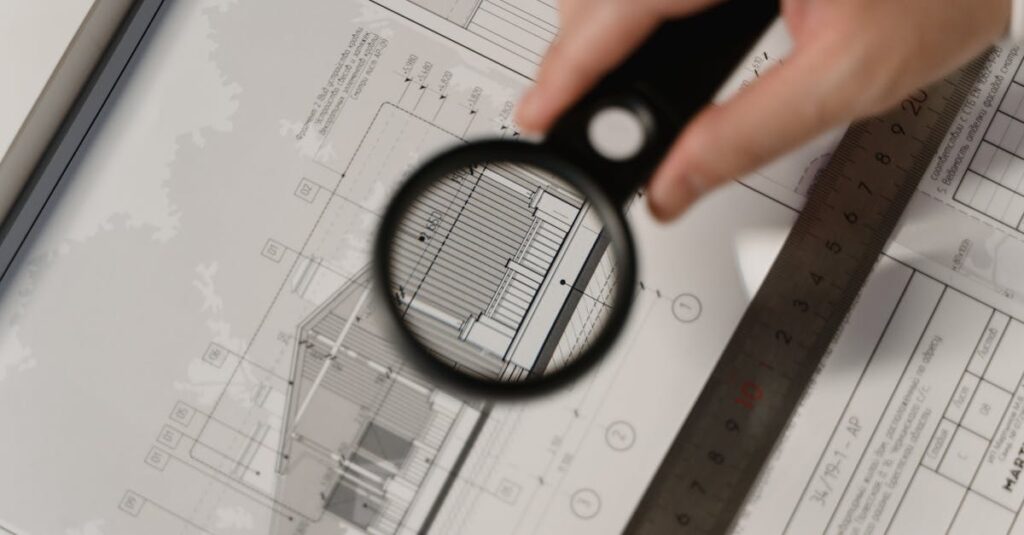I’ve watched technical writing evolve from traditional classroom settings to flexible online learning environments. As someone who’s helped countless students navigate their educational journey, I know that earning a technical writing degree online offers unprecedented opportunities for career growth.
The digital transformation has made it possible to gain expert-level technical writing skills from anywhere in the world. Whether you’re a working professional looking to switch careers or a fresh graduate seeking specialized education, online technical writing programs combine theoretical knowledge with practical applications. They’ll equip you with essential skills in documentation, content strategy and user experience – all while maintaining your current lifestyle and commitments.
Key Takeaways
- Online technical writing degree programs combine theoretical knowledge and practical skills, preparing students for diverse career opportunities in technology, healthcare, engineering, and finance.
- Programs require 120-128 credit hours for bachelor’s degrees and 30-36 credit hours for master’s degrees, focusing on core skills like document design, content development, and information architecture.
- Leading universities offer accredited programs through digital platforms, with tuition ranging from $350-850 per credit hour, plus technology fees of $50-150 per semester.
- Industry certifications like CPTC, Adobe ACE, and tool-specific credentials complement the degree and enhance career prospects, with average salaries ranging from $55,000 to $100,000.
- Essential technical writing tools and skills include content management systems, XML/HTML coding, project management, and user experience (UX) principles.
Technical Writing Degree Online
A technical writing degree program combines communication theory with practical documentation skills to prepare students for professional technical communication roles.
Core Skills and Competencies
Technical writing degree programs focus on developing essential technical communication abilities through specialized coursework:
- Document Design: Creating visually appealing layouts using industry-standard software like Adobe InDesign
- Content Development: Writing clear instructions, manuals, white papers
- Information Architecture: Organizing complex information into logical structures
- Research Methods: Gathering technical data from subject matter experts (SMEs)
- Digital Tools: Mastering content management systems (CMS) like MadCap Flare
- Project Management: Leading documentation projects from planning to completion
- User Experience (UX): Analyzing audience needs for effective content creation
- XML/HTML: Coding structured documentation for multiple platforms
- Style Guidelines: Applying standardized formats like Chicago Manual of Style
Career Opportunities for Graduates
The technical writing field offers diverse career paths across multiple industries:
| Industry | Role Examples | Average Salary Range |
|---|---|---|
| Technology | Software Documentation Writer, API Documentation Specialist | $65,000 – $95,000 |
| Healthcare | Medical Writer, Clinical Documentation Specialist | $70,000 – $100,000 |
| Engineering | Engineering Documentation Specialist, Process Writer | $60,000 – $90,000 |
| Finance | Financial Technical Writer, Policy Documentation Specialist | $65,000 – $95,000 |
| Manufacturing | Manufacturing Documentation Writer, Product Manual Developer | $55,000 – $85,000 |
- Software companies like Microsoft Oracle Google
- Healthcare organizations like Mayo Clinic Kaiser Permanente
- Government agencies like NASA FDA DOD
- Manufacturing firms like Boeing GE Siemens
- Financial institutions like JP Morgan Chase Wells Fargo
Top Online Technical Writing Degree Programs
Leading universities offer accredited technical writing degree programs through digital learning platforms with comprehensive curricula focused on professional communication skills.
Bachelor’s Degree Options
Online bachelor’s programs in technical writing combine core communication courses with specialized technical documentation training. Notable programs include:
- Arizona State University’s Bachelor of Science in Technical Communication
- 120 credit hours
- Specializations in digital media design content strategy
- Asynchronous course delivery
- University of Arkansas at Little Rock’s BA in Professional and Technical Writing
- Flexible 4-year completion timeline
- Industry-standard software training
- Professional portfolio development
- Kennesaw State University’s BS in Technical Communication
- Writing-intensive curriculum
- Industry partnerships for internships
- Virtual collaboration tools training
- University of Minnesota’s MS in Scientific and Technical Communication
- 30 credit hours
- Research-focused curriculum
- Part-time completion options
- Northeastern University’s MS in Technical Communication
- Project-based learning model
- Industry mentorship program
- Digital publishing emphasis
- James Madison University’s MA in Technical and Professional Communication
- 36 credit hours
- Virtual writing lab access
- Publishing industry connections
| Program Level | Average Duration | Total Credits | Typical Cost Range |
|---|---|---|---|
| Bachelor’s | 4 years | 120 credits | $38,000-$65,000 |
| Master’s | 2 years | 30-36 credits | $25,000-$45,000 |
Curriculum and Course Requirements
Online technical writing degree programs combine foundational writing principles with specialized technical knowledge through a structured curriculum of 120-128 credit hours for bachelor’s degrees and 30-36 credit hours for master’s programs.
Writing and Communication Courses
Core writing courses focus on developing professional communication skills essential for technical documentation:
- Document Design: Creating visually effective layouts for technical manuals user guides
- Advanced Grammar: Applying correct syntax rules technical terminology usage
- Professional Editing: Implementing style guides copyediting techniques revisions
- Digital Content Strategy: Planning organizing distributing technical content across platforms
- Research Writing: Gathering analyzing presenting complex technical information
- Content Development: Producing clear concise technical documentation user manuals
Technical Subject Matter Classes
Technical courses provide industry-specific knowledge application skills:
| Course Category | Topics Covered | Credit Hours |
|---|---|---|
| Technology | Programming basics XML HTML coding | 9-12 |
| Information Design | User experience Information architecture | 6-9 |
| Project Management | Documentation workflows Team collaboration | 6-8 |
| Industry Tools | Adobe Suite Content management systems | 6-9 |
| Digital Publishing | Web content Mobile documentation | 6-8 |
The curriculum integrates practical assignments projects:
- Software Documentation Projects
- API Documentation Development
- Technical Manual Creation
- UX Writing Assignments
- Knowledge Base Development
- Documentation Testing Protocols
- Content Management Systems
- Version Control Software
- Documentation Generators
- Collaborative Writing Tools
- Digital Publishing Platforms
- Technical Illustration Software
Choosing the Right Online Program
Selecting an online technical writing program requires careful evaluation of key factors that impact educational quality and career outcomes. I’ve identified essential criteria for assessing potential programs.
Accreditation and Recognition
Regional accreditation serves as the primary quality indicator for online technical writing programs. Programs accredited by organizations like SACSCOC, HLC or MSCHE demonstrate adherence to established academic standards. Leading industry associations, including the Society for Technical Communication (STC) and IEEE Professional Communication Society, provide additional program endorsements through certification or partnerships.
| Accrediting Body | Recognition Type | Coverage Area |
|---|---|---|
| SACSCOC | Regional | Southern US |
| HLC | Regional | North Central US |
| MSCHE | Regional | Mid-Atlantic US |
| STC | Professional | Global |
| IEEE PCS | Professional | Global |
Program Flexibility and Format
Online technical writing programs offer multiple study formats to accommodate diverse schedules. Asynchronous courses allow 24/7 access to lectures, assignments and materials through learning management systems like Canvas or Blackboard. Synchronous elements include:
- Live virtual workshops for peer review sessions
- Real-time collaborative projects using tools like Google Docs or Microsoft Teams
- Optional residency periods ranging from 2-5 days per semester
- Flexible course loads of 1-4 classes per term
- Multiple start dates throughout the academic year
- Self-paced modules with defined completion deadlines
- Virtual office hours with instructors
- Online discussion boards for peer interaction
- Cloud-based collaboration tools for group projects
- Digital submission systems for assignments
Cost and Financial Considerations
Online technical writing degree programs offer varied pricing structures based on credit hours completed institutional type. The following breakdowns detail specific costs associated with these programs alongside available financial support options.
Tuition and Fee Structures
Online technical writing degree programs charge tuition based on per-credit rates that range from $350 to $850 per credit hour. Public universities typically charge different rates for in-state ($350-500) versus out-of-state students ($650-850). Additional technology fees ($50-150 per semester) apply for accessing online learning platforms digital resources.
| Program Type | In-State Per Credit | Out-of-State Per Credit | Technology Fee |
|---|---|---|---|
| Public University | $350-500 | $650-850 | $50-100 |
| Private University | $500-850 | $500-850 | $75-150 |
- Direct Subsidized Loans cover up to $5,500 annually for undergraduate students
- Pell Grants provide up to $6,895 per academic year for eligible students
- Work-study programs offer part-time employment opportunities earning $3,000+ per semester
- Military education benefits cover up to 100% of tuition costs for veterans
- Employer tuition reimbursement programs contribute $5,250 tax-free annually
- Merit-based institutional scholarships range from $1,000 to full tuition coverage
- Professional organization grants from STC IEEE provide $500-2,500 awards
| Aid Type | Maximum Amount | Eligibility |
|---|---|---|
| Pell Grant | $6,895/year | Need-based |
| Direct Loans | $5,500/year | All students |
| Merit Scholarships | Full tuition | Academic performance |
| Employer Benefits | $5,250/year | Employee status |
Industry Certifications and Credentials
Professional certifications complement an online technical writing degree by validating specialized skills for employers. Here are key industry certifications that enhance career prospects:
Society for Technical Communication (STC) Certifications
- Certified Professional Technical Communicator (CPTC) – Foundation
- CPTC – Practitioner level for experienced writers
- CPTC – Expert level requiring 5+ years of experience
Technical Writing Tool Certifications
- Adobe Certified Expert (ACE) for FrameMaker
- MadCap Flare Certification
- Atlassian Confluence Certification
- XML/DITA Certification from OASIS
Project Management Certifications
- Project Management Professional (PMP)
- Certified Scrum Master (CSM)
- PRINCE2 Foundation and Practitioner
Software Documentation Certifications
- Google Technical Writing Certification
- API Documentation Certification
- AWS Technical Writing Certification
| Certification Level | Average Cost | Time to Complete | Renewal Period |
|---|---|---|---|
| Entry-Level | $300-500 | 2-3 months | 2 years |
| Professional | $500-800 | 3-6 months | 3 years |
| Expert | $800-1200 | 6-12 months | 3-5 years |
- Higher salary potential with certified expertise
- Enhanced credibility in specialized industries
- Access to exclusive job opportunities
- Professional network expansion
- Regular skill updates through renewal requirements
These certifications provide measurable benchmarks for technical writing expertise across documentation tools software development processes.
Costs & Career Paths
Getting a technical writing degree online is an investment that can transform your career path in today’s digital-first world. I’ve seen how these programs have evolved to offer comprehensive education that matches (and sometimes exceeds) traditional classroom learning.
The combination of technical skills practical experience and industry certifications creates a solid foundation for success in this growing field. Whether you’re a working professional or just starting your career journey an online technical writing degree provides the flexibility and knowledge you need to thrive.
I encourage you to explore the programs I’ve outlined and choose one that aligns with your career goals and schedule. With the right education and dedication you’ll be well-equipped to excel in this rewarding profession.



